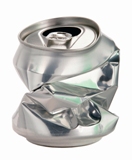
Manufacturing companies must work to face and overcome these to find a suitable solution if they are to meet the increased demand for products. Rexam, as a global manufacturing company, is well placed to find innovative solutions, and can use the knowledge and experience gained from working in a variety of cultures and environments to ensure the needs of its customers, and end-consumers, are met.
India is a growing market where Rexam has tackled these challenges head on, investing time and money in the region to ensure that the way it works is in step with the local market, and ensuring that the end-consumer gets the perfect beverage packaging.
Market recognition
In recent years, India has gone from strength to strength as a major global manufacturing player, producing goods for a large number of global brands from across the world. The Indian packaging industry is currently worth approximately $18.8 billion (approximately £11.7 billion). Rigid packaging accounts for around 75 per cent of the packaging produced, including bottles, corrugated boxes and beverage cans.
Recognising the importance of the Asian market, Rexam Beverage Can recently announced the creation of a new division from January 2013, which will focus on the region. Beverage Can Asia, Middle-East, and Africa (AMEA) will include Rexam's existing plant in India, as well as those in Turkey and Egypt. The new sector will allow Rexam to focus resources more strategically and capture its share of growth opportunities in this fast-growing region.
Rexam for some time has seen great opportunities in the region. In 2011, it announced that, together with its partner Hindustan Tin Works Ltd, a leading Indian can producer, it was to build a new high-speed two per cent aluminium beverage can manufacturing line at its current site in Taloja, close to Mumbai. The new line represents a capital investment of £30 million over two years. The plant will initially produce 33cl and 50cl cans and then sleek cans, increasing total capacity from under 400 million cans to about 950 million per year, with production due to start in the final quarter of 2012.
Changing demand

The reason for the continued investment is two-fold. Asia is seen by global companies as an attractive market from which to operate and as regional economies have grown, as we have seen in India, it has given rise to new consumer segments in the country. In India, this is due to rising incomes, a larger youthful population, a growing economy, expansion in the availability of products and services, and relatively easy availability of credit. As regional economies grow, the demand has shifted its emphasis and there is an increasing requirement for Rexam to meet the needs of consumers in the region.
As a global manufacturing company, Rexam understands that each country, region and demographic has their own preferences when it comes to beverage packaging formats. The demands of each country in the Asian market differs, and it is imperative that these are met if consumers are to remain happy and satisfied with their purchases, despite the challenges they might produce.
The new consumer
Culturally India is not a canned carbonated soft drinks market, with a preference for tea, milk and fresh juice historically being the drink of choice. The can has been seen by many as a premium product and not available to a majority of the population but this perception is changing.
Industry research has found that three new major consumer segments have emerged in India: children, youth (which includes the young working singles) and the urban Indian woman. These consumers have shown a tremendous increase in influencing and are driving purchasing decisions, which are no longer being driven by necessity, but to satisfy individual needs. There has therefore been a shift in how the beverage can is viewed - it is no longer an aspirational packaging format, but is one that is available for normal, not premium, consumption.
With a fast and substantive increase in the Indian middle-class population, who are increasingly made up from a younger generation who have more disposable income, the retail sector across India is expanding and providing the catalyst for growth in the packaging industry. Indeed, in 2011, over 60 per cent of India's population was under 30 years of age and fuelling a huge demand for intrinsically and uniquely designed branded products. Rexam has identified this need in the beverage can market and have been a leader in offering the 2-piece beverage can in India, especially as the can is seen as the 'cool' packaging for the younger generations to enjoy their beverage from.
Pushing new markets
A cultural challenge which is present in the Indian market for producers of beverage cans is the attitude towards alcohol, in particular beer. Historically there has been a social taboo to alcohol consumption, but urban consumers have become more exposed to western lifestyles and attitudes are changing. With this relaxation, a large number of international brewers are looking to gain a share of the market. India has seen beer sales increase and Rexam is now able to work with the international brewers to provide them with a packaging solution for the Indian market.
Due to the size of the country, manufacturers have to be able to respond to different levels of demand. Consumers are requesting different qualities from their packaging - in particular sizes. With a large number of sizes on their portfolio, Rexam is well equipped for this demand, and their plant in Mumbai currently offers both 330ml and 500ml standard aluminum cans, with this due to increase once the installation of the new canning line is complete. This size demand, once overcome, will help to drive the popularity of the beverage can and to allow it to move into new beverage categories, including the increasingly popular energy drinks.
Overcoming challenges through people
Entering new markets will always pose challenges for any business. Rexam will only enter markets when it is confident that it can deliver innovative solutions to its customers' that meet their needs. Rexam invests time, money and energy into making sure its regional operating models are fit for purpose as it is vital that strong working relationships are built in local communities.
When entering the market, regional business knowledge is invaluable. This is particularly important in a country like India where it is often said that India is actually 29 countries with 325 languages and 1,652 dialects. Companies must ensure that local understanding is used to the best of its ability to ensure the packaging produced appeals to both the local consumers as well as those on a global scale. Using local employees as Rexam does is one way a firm can learn the culture and ways of the local markets it operates in.
Finding the best talent to run the business is essential to the success of any organisation and this can prove to be a challenge in a new country. However, understanding the culture and working etiquette of India, allows for the right individuals to be found, as well as having a detailed brief on who is needed and what they will bring to the organisation such as a deep understanding of the Indian business world and the economy, through essential local knowledge. For any global company operating locally it is vital that they play a constructive part in local communities.
Rexam and its employees place great importance on its contribution to the local communities in which it works, with the team at the Mumbai plant regularly taking part in charitable and community events. For example, at the start of 2012, following a refurbishment of the plant office, Rexam donated a number of working tables to a struggling local school. Furthermore, in August this year, one of Rexam's employees embarked on a fund-raising mission to raise money to purchase new equipment for her former school in the local village of Wai. Enough money was raised to not only purchase new benches for her former school, but to also support other schools in the local area.
Making and moving goods
With more brands turning to India to manufacture packaging for their products, the demand for innovative and unique designs has increased significantly. Limited manufacturing infrastructure has been one of the more significant challenges to manufacturers and investment has been required to bring standards up to the international level. Because companies have invested heavily in the region, manufacturers are able to offer the same products and design capabilities to the Asian market.
For any can maker one of the most important requests from its customers is to showcase the brand in the very best light. Innovation and design is crucial to this and is an area in which India has moved quickly, helped significantly by the quality and number of professionals who now work in the industry.
The process of manufacturing beverage cans can also pose difficulties for manufacturers. Whilst most of the countries in Asia are reasonably self-sufficient in water supply, the availability of water must be taken into consideration. It must be presumed that it will not last indefinitely and precautions must therefore be taken to preserve as much of the resource as possible, especially when a majority of the countries can often experience high temperatures for long periods of time throughout the year. To ensure the supply of water is maintained, there are a number of sustainable water solutions being developed which will allow manufacturing companies, such as Rexam, to conserve water and to re-use it wherever possible.
Transporting the finished products between manufacturer and filler, and ultimately, the end-consumer, can also pose a challenge. The transport system in the Asian market as a whole, with the exception of countries such as China, Singapore and South Korea, is still developing. Unlike Europe, where it is relatively easy to travel, Asia is spread out over a wide area geographically and with varying levels of development, the logistics of serving customers can become a challenge. Working together with local transport and logistics companies, as well benefiting from the knowledge of local employees, is invaluable in ensuring a high standard of service is maintained. Transport plays a key role in the overall economic and social growth of a majority of the Asian countries, and development in this area is moving at a fast pace despite the substantial investment it requires.
Investing in the future
Rexam Beverage Can has successfully run their plant in Mumbai since 2006 and has overcome a number of challenges during this time which has led to a sound understanding of what it takes to be successful in the region. Understanding the cultural context is vital and must be recognised in all aspects of the business. Consumer needs may be different to those in Europe, but they are not difficult or impossible to meet once you learn what it is that regional customers are most looking for with your products. Crucially an understanding and a respect for local markets, the ability to meet the changing needs and demands of consumers; and the ability to adapt a flexible business model to what country you operate in means that the majority of challenges can always be overcome.





